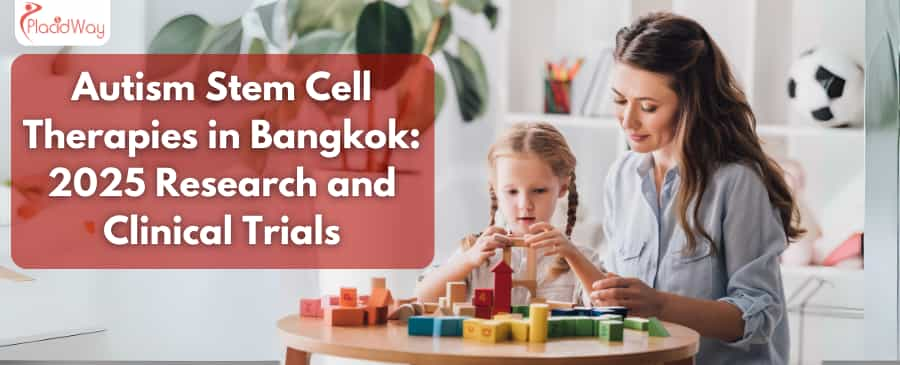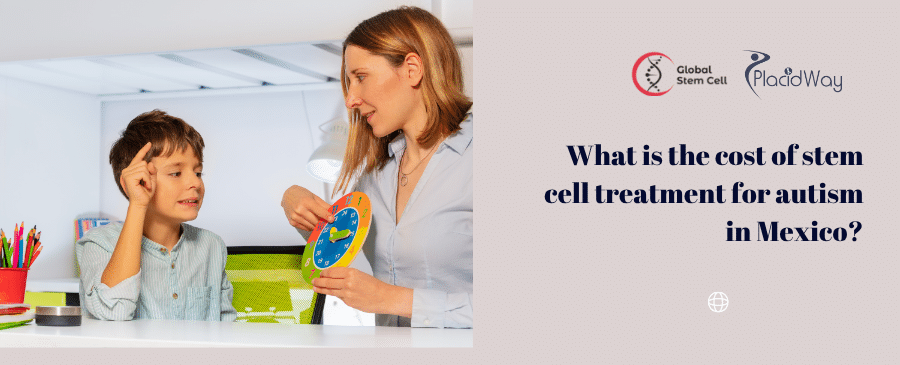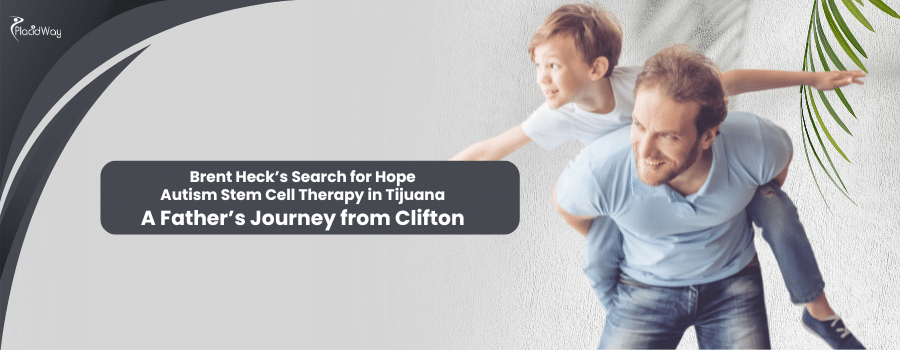
Highlights at a Glance:
- Ongoing research in 2025 in Bangkok is examining how stem cell therapy may enhance social skills and cognitive abilities in individuals with autism.
- Strict clinical trials are conducted to ensure patient safety, appropriate sourcing of cells, and responsible treatment methods.
- Initial results appear promising, with some patients showing improvements in communication and a decrease in behavioral issues.
- Cooperation among local institutions, global researchers, and patient groups fosters innovation and ethical standards.
As of 2025, Bangkok has positioned itself as a significant hub for investigating stem cell therapies for autism treatment. Although autism spectrum disorder (ASD) currently has no known cure, research is dedicated to leveraging the regenerative potential of stem cells to alleviate core symptoms.
In Bangkok, scientists and healthcare professionals collaborate closely, developing comprehensive clinical trials that prioritize ethical standards, patient safety, and meaningful outcomes. As more families search for alternatives to conventional therapies, the innovative approach in Bangkok offers hope for improved communication, enhanced social interaction, and a better quality of life for individuals living with autism.
Why Consider Stem Cell Therapy for Autism?
Autismo manifests as challenges in social interaction, communication, and patterns of repetitive behavior. Current treatment methods primarily focus on behavioral therapies, educational support, and medication to alleviate specific symptoms.
Terapia con células madre aims to address underlying neurological discrepancies. Certain stem cell types, when introduced into the body, may help reduce brain inflammation, foster healthier neural connections, and potentially influence inter-brain communication. Though this research is in its early stages, the goal is to create a more supportive brain environment that enhances traditional treatment outcomes.
The Research Climate in Bangkok in 2025
Bangkok’s medical field benefits from a vibrant research ecosystem. Government initiatives, academic institutions, private clinics, and international collaborations form a network dedicated to advancing the field of regenerative medicine. In 2025, numerous prominent clinical trials are concentrating on autism:
- Collaborative Studies: Institutions engage in regional trials, pooling resources and data to enhance discovery.
- Standardized Protocols: Researchers adhere to established guidelines concerning cell type selection, dosage, and administration methods, ensuring result consistency and data integrity.
- Ethical Oversight: Ethics committees evaluate all trial designs, patient consent protocols, and follow-up procedures. Protecting vulnerable populations while securing informed consent remains paramount.
Structure of Clinical Trials and Patient Participation
Clinical trials examining stem cell treatments for autism typically unfold in phases. Early-phase studies emphasize safety—monitoring patients for potential side effects, assessing how the body reacts to the administered cells, and ensuring no adverse immune responses occur. In subsequent phases, treated groups are compared to control groups to measure enhancements in communication, social skills, and behavioral improvements.
Parents and caregivers are integral to the process. They receive comprehensive details regarding the therapy’s risks and benefits, the trial’s length, and expected outcomes before consenting to participate. Continuous feedback and monitoring of progress aid researchers in adjusting protocols for greater efficacy in future trials.
Types of Stem Cells Used in Thailand
The majority of autism-related trials in Bangkok focus on mesenchymal stem cells (MSCs). MSCs, typically sourced from umbilical cord tissue or bone marrow, are recognized for their anti-inflammatory capabilities. Some studies also explore neural stem cells, which have a direct impact on brain cell development. Trials meticulously screen the stem cell sources to guarantee purity, viability, and compatibility with patients.
Stringent measures are implemented to maintain cell quality. Accredited laboratories adhere to rigorous protocols for cell isolation, storage, and transportation. Clinics often collaborate with independent testing facilities to confirm that each batch of cells meets internationally acknowledged quality standards before usage.
Early Findings and Patient Insights
While it is premature to draw definitive conclusions, several patients participating in these 2025 trials have reported positive developments. Parents have observed subtle improvements in children’s attention spans, decreased irritability, and a heightened willingness to partake in social activities. Therapists may also notice that communication exercises yield more favorable responses following therapy sessions.
That said, it is crucial to acknowledge that not every patient experiences uniform levels of enhancement. As stem cell therapy remains in the experimental stage, outcomes are influenced by factors such as age, severity of autism symptoms, and existing conditions. Researchers emphasize the need for larger participant pools and extended follow-up periods to derive reliable, evidence-based conclusions.
Finding a Balance Between Hope and Realism
Families considering stem cell therapy for autism must balance optimism with realistic expectations. The medical community in Bangkok advocates for transparent communication: healthcare providers and researchers clarify current scientific understanding, potential benefits, and established limitations. Patients and caregivers should be made aware that while these therapies hold promise, they are not yet proven cures.
By 2025, the element of transparency has become foundational in Bangkok’s stem cell research environment. Comprehensive disclosures regarding trial results, ongoing studies, and established procedures empower patients to make informed choices. Researchers are committed to refining methodologies, enhancing success rates, and identifying patient subgroups that show the most benefit.
Collaborative Efforts and Their Global Impact
Bangkok’s research community does not work in isolation. It collaborates with global research organizations, patient advocacy networks, and international think-tanks focused on autism and regenerative medicine. Exchanging findings, methodologies, and patient experiences adds depth to the worldwide understanding of autism therapies.
These partnerships enable Bangkok’s clinics to adhere to international best practices. They engage in data exchange with international peers, promoting standardization and comparability. This cross-border dialogue accelerates the pursuit of safer, more effective therapies that could be adopted globally.
Leading Clinics in Thailand
Clínica de células madre Vega
Reputation & Methodology:
- Clínica de células madre Vega provides advanced regenerative treatments, including cutting-edge neurological stem cell therapies.
- Creates personalized care plans informed by continual research and development.
- Maintains rigorous adherence to international standards and transparent practices.
Beike Biotech
Reputation & Methodology:
- Beike Biotech is distinguished by its strong international footprint in the regenerative medicine arena.
- Offers extensive patient support, covering everything from travel arrangements to post-treatment monitoring.
- Partners with global research entities to boost the safety and efficacy of treatments.
STEMCERA by Vega Stem Cell
Reputation & Methodology:
- STEMCERA specializes in pioneering stem cell solutions for conditions including autism and Parkinson’s disease.
- Dedicated to providing thorough treatment information and transparent patient outcome reporting.
- Complies with stringent international guidelines to ensure ethical, evidence-based treatment.
Prominent Doctors in Thailand
Dr. Surasak Jirapornchai
Key Attributes:
- Places a strong emphasis on patient education, clarifying each step of the process.
- Actively engages in research, ensuring treatment methods align with global standards.
- Integrates innovative science with approaches that are favorable for patients.
Dr. Chollawat Thongthaisi
Key Attributes:
- Tailors stem cell therapies to accommodate each patient’s specific needs.
- Actively seeks input from families to continuously improve treatment plans.
- Collaborates with international specialists to ensure a cutting-edge treatment portfolio.
Dr. Sean Hu
Key Attributes:
- Prioritizes patient comfort while minimizing potential side effects.
- Delivers comprehensive follow-up care to monitor improvements and fine-tune therapies.
- Maintains stringent quality control throughout the process, from cell sourcing to post-treatment assistance.
Reasons for Their Popularity
The leading clinics and doctors in Thailand are gaining traction in 2025 due to their blend of affordability, high standards, and comprehensive patient support. They remain committed to ongoing research, utilize state-of-the-art technologies, and prioritize patients in every decision. This innovative, comprehensive, and transparent methodology positions Thailand as a respected destination for regenerative and stem cell treatments globally.
Future Prospects
Stem cell therapies for autism in Bangkok represent a pioneering area of medical exploration. As researchers refine treatment protocols and assemble larger, more varied patient samples, the true potential of this therapy will become more pronounced. The objective is to facilitate greater independence, enhance communication abilities, and promote deeper connections among individuals with autism by addressing neurological inflammation, improving cellular environments, and enhancing the body’s natural repair mechanisms.
Looking beyond 2025, researchers aim to integrate stem cell therapy into a comprehensive strategy that combines it with behavioral treatments, educational support, and nutritional guidance. The vision is to provide families with more resources, knowledge, and ultimately renewed hope in managing and enhancing the lives of those impacted by autism.
Preguntas frecuentes
1. Is Stem Cell Therapy for Autism Proven to Be Effective?
Stem cell therapy for autism remains experimental. Early trials and patient experiences in 2025 suggest possible benefits, such as improved social interaction, reduced irritability, or longer attention spans. However, the scientific consensus highlights the need for more extensive, long-term studies. While the initial results are promising, this therapy should be seen as an evolving option rather than a guaranteed solution.
2. What Types of Stem Cells Are Used in Autism Therapy?
Clinical trials in Bangkok primarily use células madre mesenquimales (MSC), sourced from umbilical cord tissue or bone marrow. MSCs are valued for their anti-inflammatory effects and potential to support neural health. Some studies are also exploring neural stem cells. Ethical clinics adhere to strict safety standards, ensuring cells are ethically sourced, thoroughly tested for purity, and handled in sterile, regulated environments.
3. How Are Safety and Ethics Ensured in These Trials?
Stem cell therapy trials for autism in Bangkok follow guidelines set by ethics committees and regulatory bodies, often working with international research groups. These entities ensure patient consent, clear communication, and responsible use of stem cells. Clinics screen patients carefully to determine suitability and monitor them closely to detect any side effects. Reputable providers also share credentials, quality protocols, and success rates to help families make informed decisions.
4. What Should Families Consider Before Trying Stem Cell Therapy?
Before pursuing stem cell therapy, families should consult healthcare professionals to evaluate the patient’s overall health, autism severity, and prior treatments. Since this therapy is not a guaranteed cure, outcomes can vary—some patients may experience significant changes, while others might not. Families should also consider costs, travel arrangements, and the commitment to follow-up care and complementary therapies.
5. How Long Is the Treatment in Bangkok, and What Follow-Up Is Required?
The treatment typically requires a stay of a few days to a week in Bangkok, allowing time for assessments, cell administration, and short-term observation. After returning home, follow-up care is often conducted through virtual consultations or local healthcare providers. These follow-ups are crucial for monitoring progress and refining therapy methods.
6. Are Additional Therapies Recommended Alongside Stem Cell Treatments?
Yes, stem cell therapy is usually part of a broader autism management plan. Experts often recommend continuing behavioral, speech, educational, and occupational therapies in tandem with stem cell treatment. This holistic approach supports neurological changes with practical skill-building, enhancing the potential for meaningful improvements.
Book an Appointment
Autism stem cell therapy trials in Bangkok in 2025 combine advanced science, ethical rigor, and patient-focused care. While still in development, these treatments offer a fresh perspective on autism management. Through ongoing research, transparent practices, and global collaboration, Bangkok’s medical experts are paving the way for more effective autism interventions, bringing hope to families worldwide.






